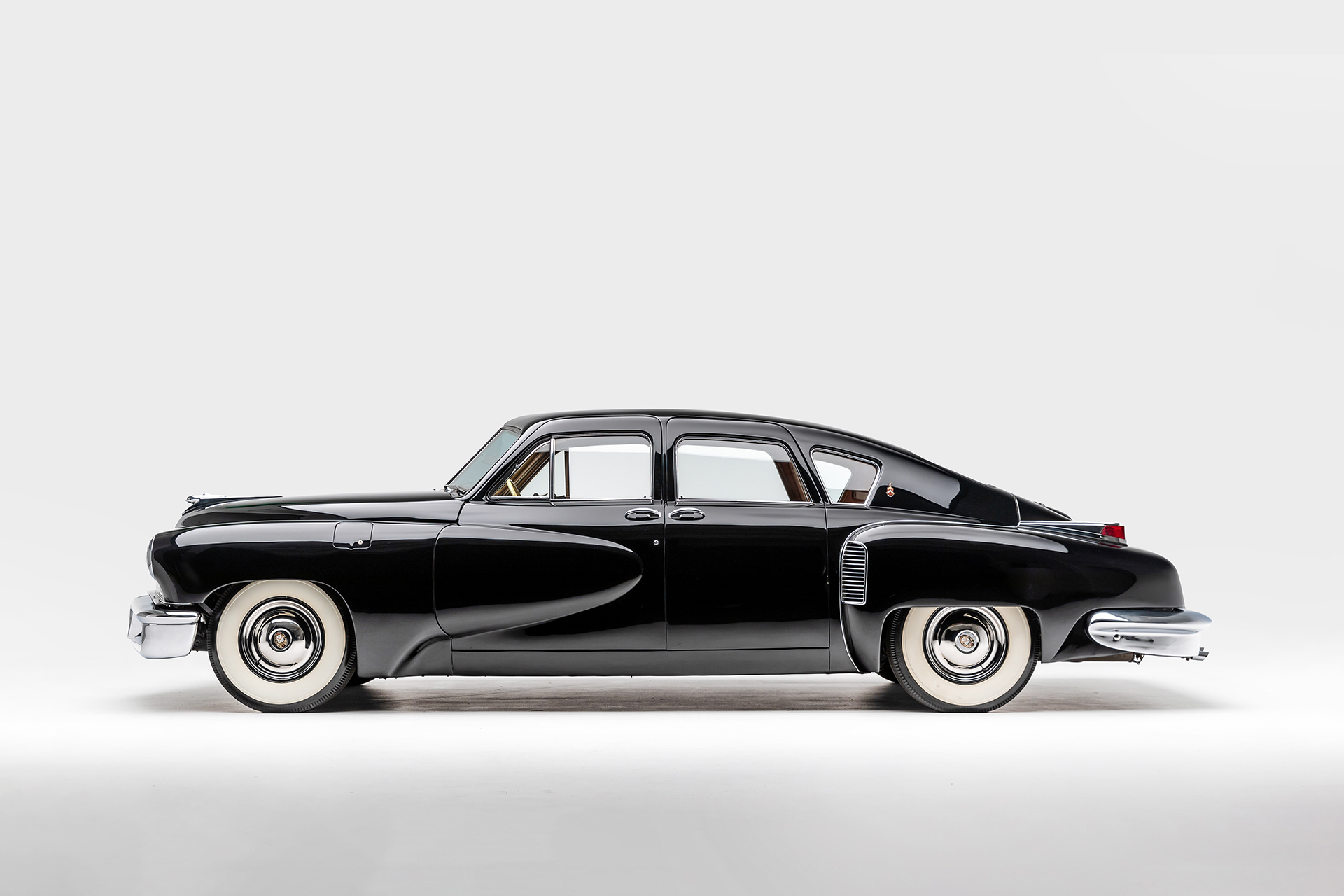Tucker
The Rarest Brands in the Top 100 Collections
Photo credit: Petersen Automotive Museum, Road & Track, Wheelsage
The name Preston Thomas Tucker unequivocally embodies the American dream. From a very young age, he dreamed of being a part of the automotive world, and in 1935, he obtained a degree in engineering. In the same year, he founded Miller and Tucker Inc. together with Harry Miller, who was already a winner with his cars at the Indy 500.
Due to the outbreak of the Second World War, Tucker’s original plans did not go as hoped. Instead, he decided to focus on military vehicles and, in 1938, he designed the prototype of a compact armoured car powered by a Packard V12.
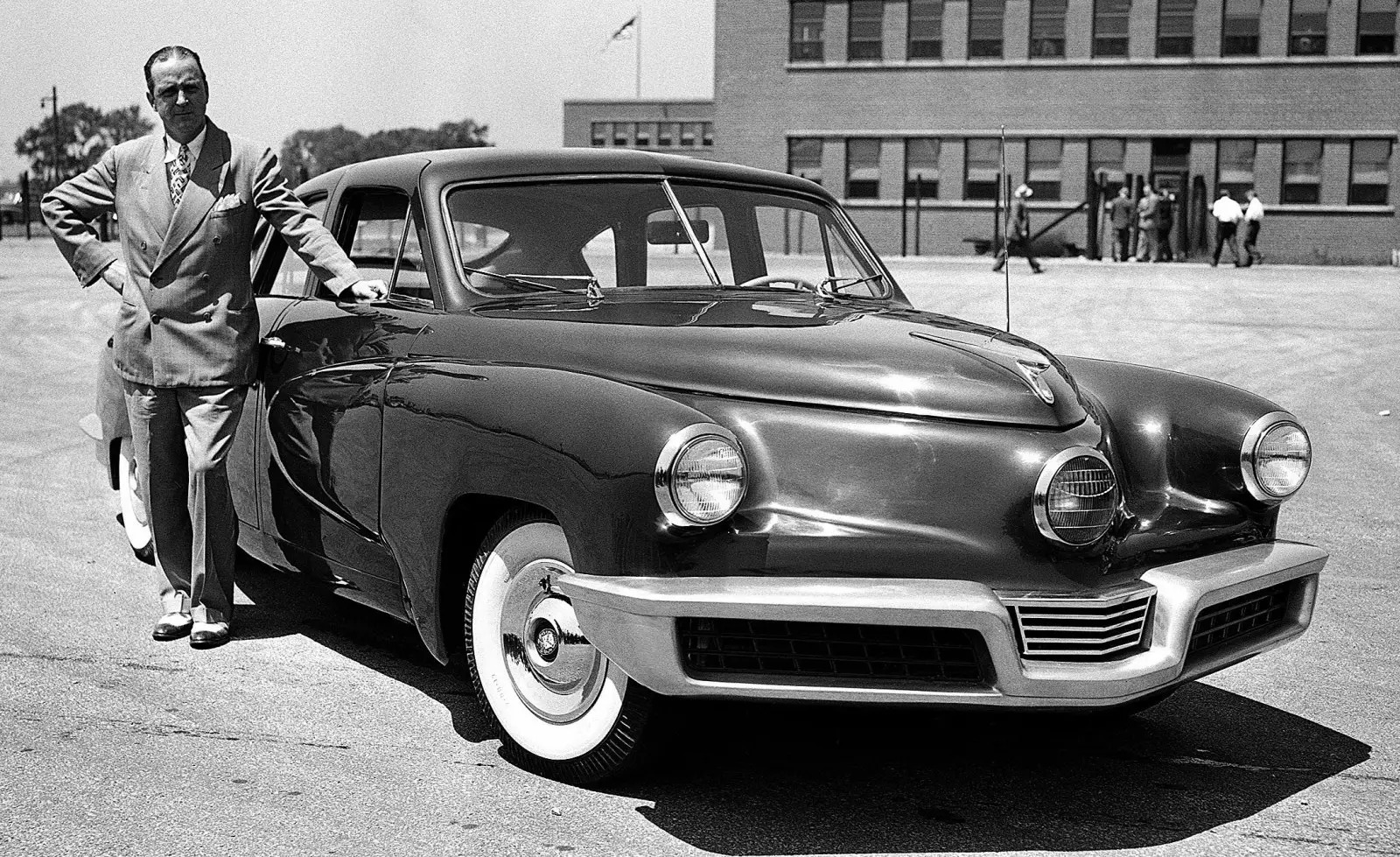
Thanks to his contacts with the U.S. Army, Tucker was able to secure the assignment of a large former Dodge plant in Cicero, near Chicago, at the end of the war. It was here that his dream would become reality: to produce a revolutionary, technologically advanced, aerodynamic, comfortable and safe car that would reflect the opulent American clientele of the post-war period.
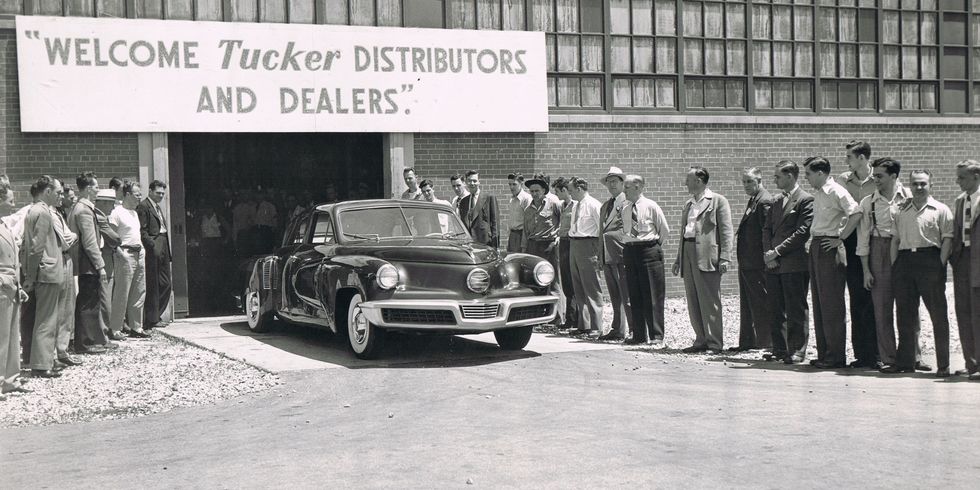
To bring his car to life, Tucker hired the young Alex Tremulis, who had previously participated in the design of the legendary Cord 812 in 1936. The final result was the prototype, named the Torpedo “Tin Goose”, an imposing 4-door sedan with an attractive design and a cx of just 0.27. The car adopted cutting-edge technical solutions, including a sophisticated four-wheel independent suspension system and the characteristic central headlight that followed the movements of the steering wheel to illuminate shadowed areas while cornering.
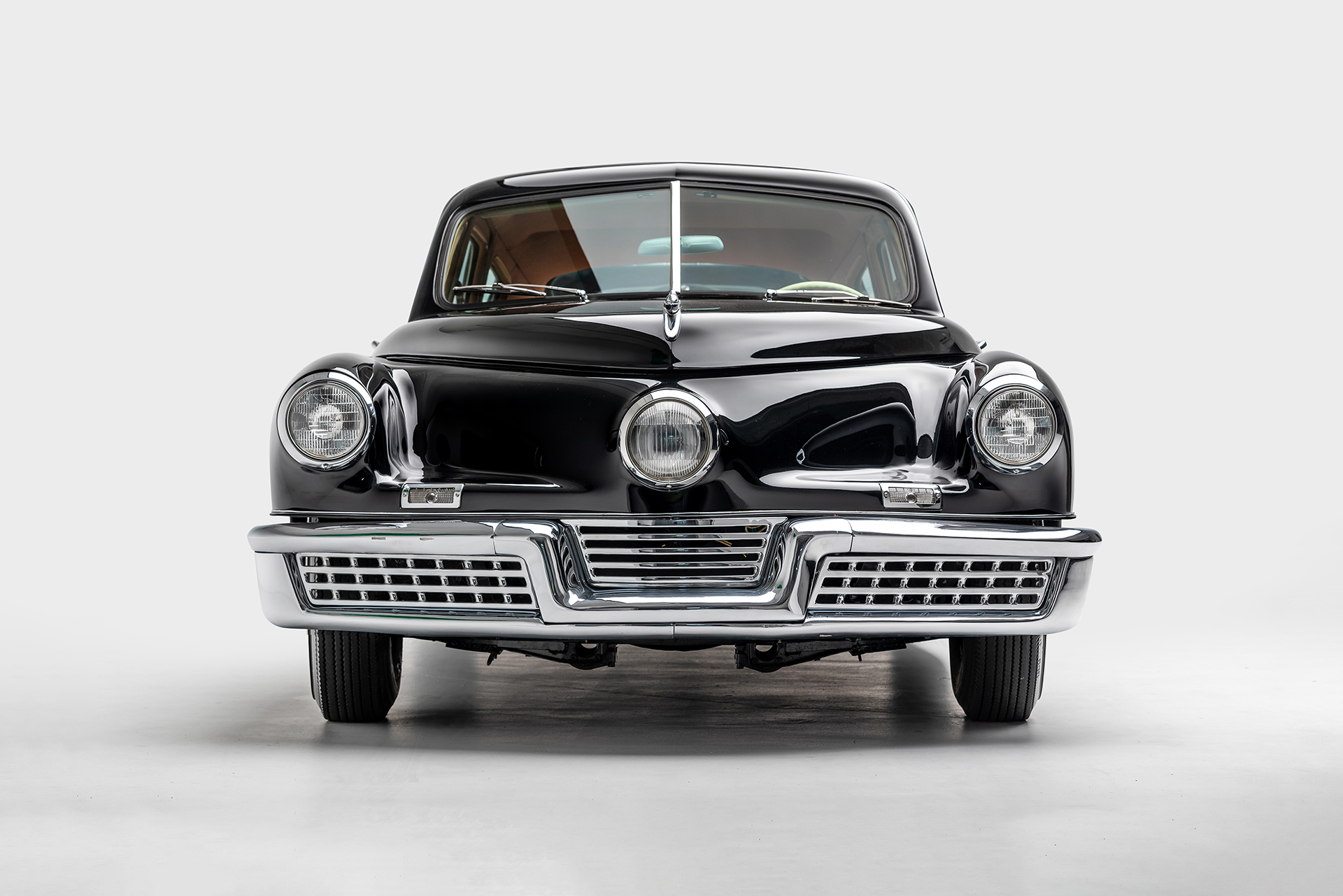
Following the presentation of the prototype in 1947, Tucker produced 50 examples, renamed the “48”, which received a very positive response from the public, resulting in the firm taking several million dollars’ worth of purchase deposits. Unfortunately, the commitment to sell more cars on paper than they could actually produce, along with difficulties in manufacturing such a modern and complicated car, led to an unfortunate end for Preston Tucker’s dream, plagued by financial and legal problems.
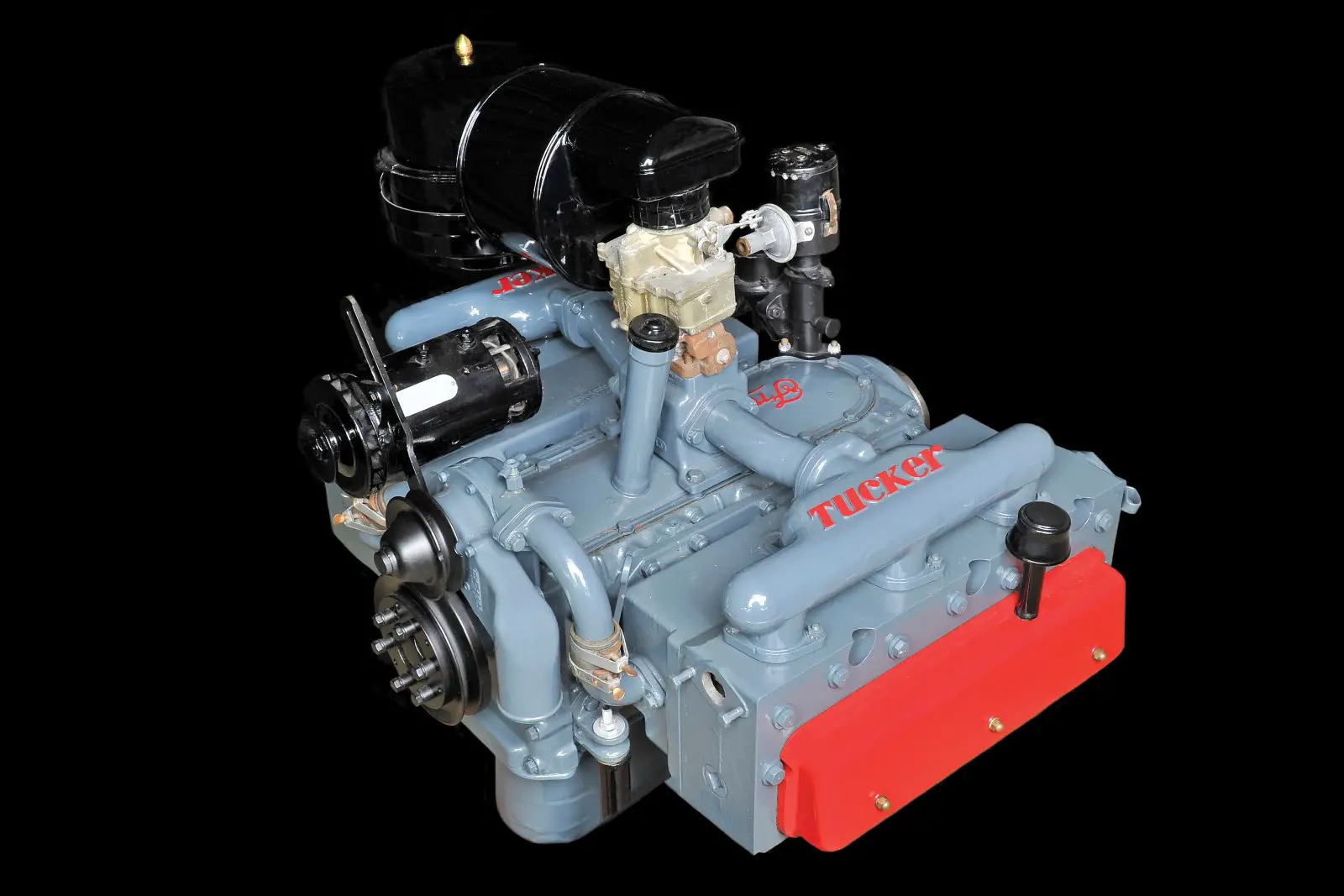
The story of Preston Tucker and his failed dream can be experienced through Francis Ford Coppola’s film “Tucker: The Man and His Dream,” which traces the life of a man who was a victim of his excessive desire to innovate.
